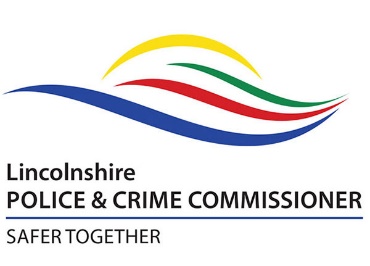
Dispose of household waste
Your household waste must be disposed of correctly. If you’re giving it to someone else, you must make sure that they’re legally allowed to take it. You could be fined if you give your household waste to someone who is not legally allowed to take it.
What counts as household waste
Household waste is any waste that comes from your household. It can include:
- your usual household rubbish
- unwanted or unusable items such as old mattresses, furniture or electrical items
- garden waste
- oils and paints
- scrap metal such as old car parts
- septic tank sludge
- DIY waste such as rubble, timber or bricks
What to do with household waste
Most of your usual household rubbish can go in the bins provided by your local council. Check what your local council collects and how to order bins: www.gov.uk/find-local-council
For rubbish that you cannot put in the bins, you can:
- arrange a special collection for large waste items (for example, an old mattresses or fridge) www.gov.uk/collection-large-waste-items
- dispose of garden waste through your local council
www.gov.uk/garden-waste-disposal
- take your waste to the household waste and recycling centre run by your local council
- take your waste to a permitted private waste site
- use a registered private business that provides a waste collection service - for example, a skip company or household clearance service, and get a receipt.
- give old electrical items to retailers when you buy new electrical items from them with the same function - for example, you can give a shop your old kettle when you buy a new one
- give away or sell reusable items - for example, by giving items to a charity shop
Using a tradesperson
If you hire a tradesperson for construction or renovation work, any waste they produce is classed as business waste. Your tradesperson is responsible for removing the waste and disposing of it correctly. They can check what they need to do online: www.gov.uk/dispose-business-commercial-waste
Checks you need to do if you use a private waste company
What you need to do depends on if you’re:
- using someone else to get rid of your waste, for example, a skip company or house clearance service
- getting rid of your waste yourself
If someone is getting rid of your waste for you
If you use a private business that provides a waste collection service, you must check the company is on the register of waste carriers. You need to select ‘upper tier’. http://environment.data.gov.uk/public-register/view/search-waste-carriers-brokers
If you’re giving your waste to a scrap metal collector, you can also check that they’re on the register of scrap metal dealers. www.gov.uk/public-register/view/search-scrap-metal-dealers
If you arrange for a charity to collect items, you must check the charity is on the register of waste carriers. You need to select ‘lower tier’. http://environment.data.gov.uk/public-register/view/search-waste-carriers-brokers
If you’re getting rid of your waste yourself
If you’re taking your waste to a private waste site, you must check the site has either:
- an environmental permit for waste operations
- a registered waste exemption
Ask the company that runs the site for their permit number or exemption registration number. Check the number against:
- the Environment Agency’s register of environmental permits for waste operations.
https://environment.data.gov.uk/public-register/view/search-waste-operations
- the Environment Agency’s register of waste exemptions.
https://environment.data.gov.uk/public-register/view/search-waste-exemptions
Alternatively, do a check through your local council www.gov.uk/find-local-council or the Environment Agency.
Environment Agency
enquiries@environment-agency.gov.uk
Telephone: 03708 506 506
Monday to Friday, 8am to 6pm
Fixed penalty notices and fines
If you give your waste to someone who cannot legally take it and you did not do the necessary checks on them, you might:
- have to pay a ‘fixed penalty notice’ to your local council.
www.gov.uk/pay-challenge-fine-environmental-offence
- be prosecuted and have to pay a higher penalty - for example, if you do not pay your penalty notice on time or if you’ve previously had a penalty notice for a similar offence
This could happen, for example, if something that has been fly-tipped (dumped illegally) is identified as yours.
Reporting waste crime
Waste crime is dealt with in accordance with size, scale, environmental impact and who’s involved.
The Environment Agency is responsible for dealing with large scale waste crime. This looks like more than a lorry load of waste. Signs that you could be witnessing waste crime include:
· increased numbers of lorries entering a site
· drastic increases in waste stored on sites in a short period of time
· activity out of hours
· waste going in but not coming out
· smoke
· water pollution
· machinery operating like excavators, dust, noise and increased site work
You can report these types of waste crimes and those you believe are involved to our partner, Crimestoppers. 100% anonymous. Always. 0800 555 111 or online: https://crimestoppers-uk.org/give-information/forms/give-information-anonymously
Local councils are responsible for dealing with small scale waste crimes, such as fly-tipping. They also have powers to fine unregistered waste carriers, to investigate and deal with statutory nuisance and waste issues, such as someone burning waste in their garden impacting their neighbour and noise and dust nuisance from waste activities.
You can report these types of waste crimes to your local council:
In addition, local councils share responsibility with the Environment Agency for some medium scale waste crimes such as illegal dumping, disposal, treatment and burning.
